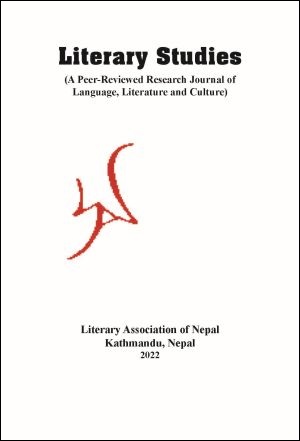Post-Traumatic Stress Disorder: Causes and Management in Ravi Thapaliya’s Echoes of Pain
DOI:
https://doi.org/10.3126/litstud.v35i01.43681Keywords:
Morbidity, revenge psychology, torture, traumatic experience, psychic disorderAbstract
Morbid human instinct and revenge psychology can lead a person to torture others with massive pain often pushing their lives into post-traumatic stress disorder which, however, can be managed with careful medicinal treatment, family support and elimination of the causes of disorder itself. Based on library research, consulting relevant archived documents supportive for analyzing the novel, this study employs the theory of trauma particularly drawing upon Caruth, Capra, Fish, Albucher and Liberzon who elaborate multiple aspects of the theory including the creation and elimination of psychic disorder. The findings show how a police interrogator tortures the suspects and enjoys at their pain in guidance of his revenge psychology developed years back when he was a street boy. The successful treatment of disorder shows how properly caring and loving the patients instead of creating distance, bringing them under proper treatment instead of isolating them and setting the things in right order instead of overlooking the causes can bring its proper management, thereby bringing the patients’ lives into right track and regular rhythm that anybody can implement for managing such disorders.
Downloads
Downloads
Published
How to Cite
Issue
Section
License
© Literary Association of Nepal (LAN)

